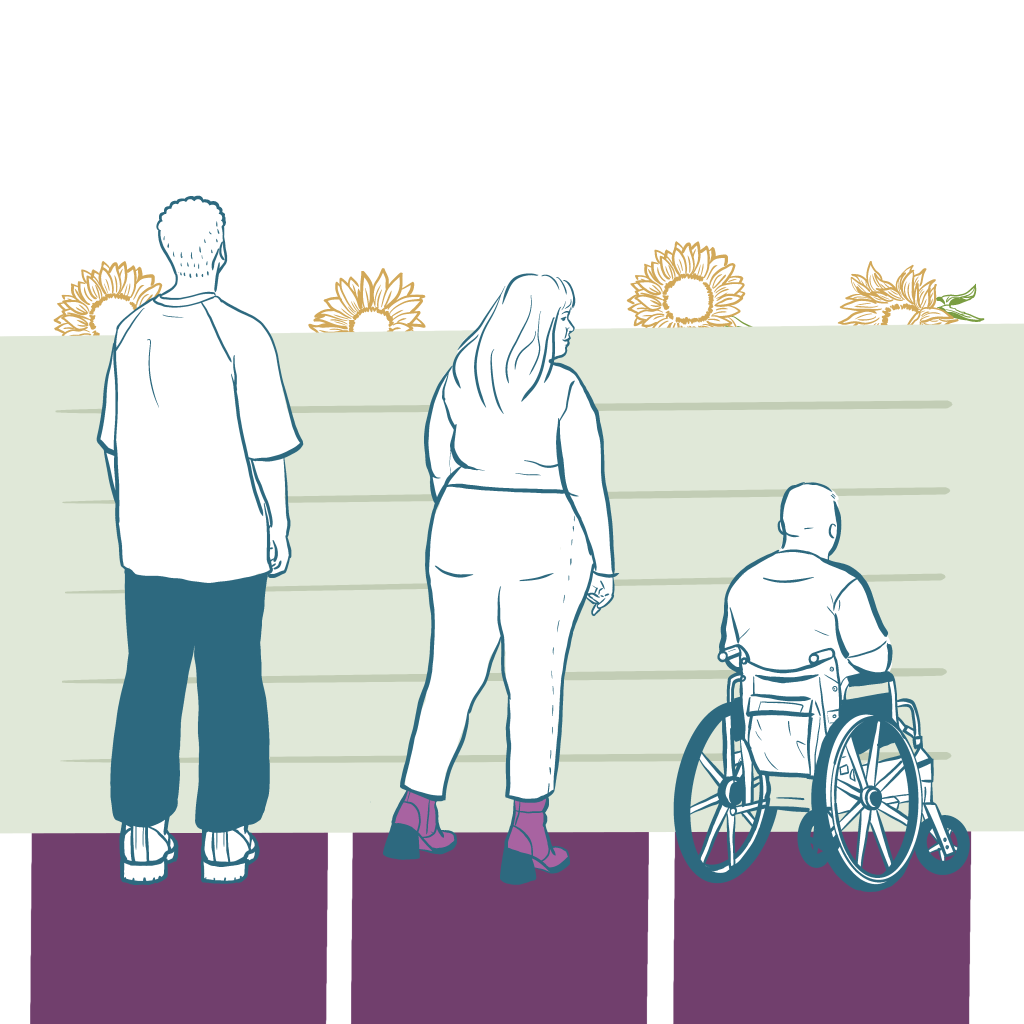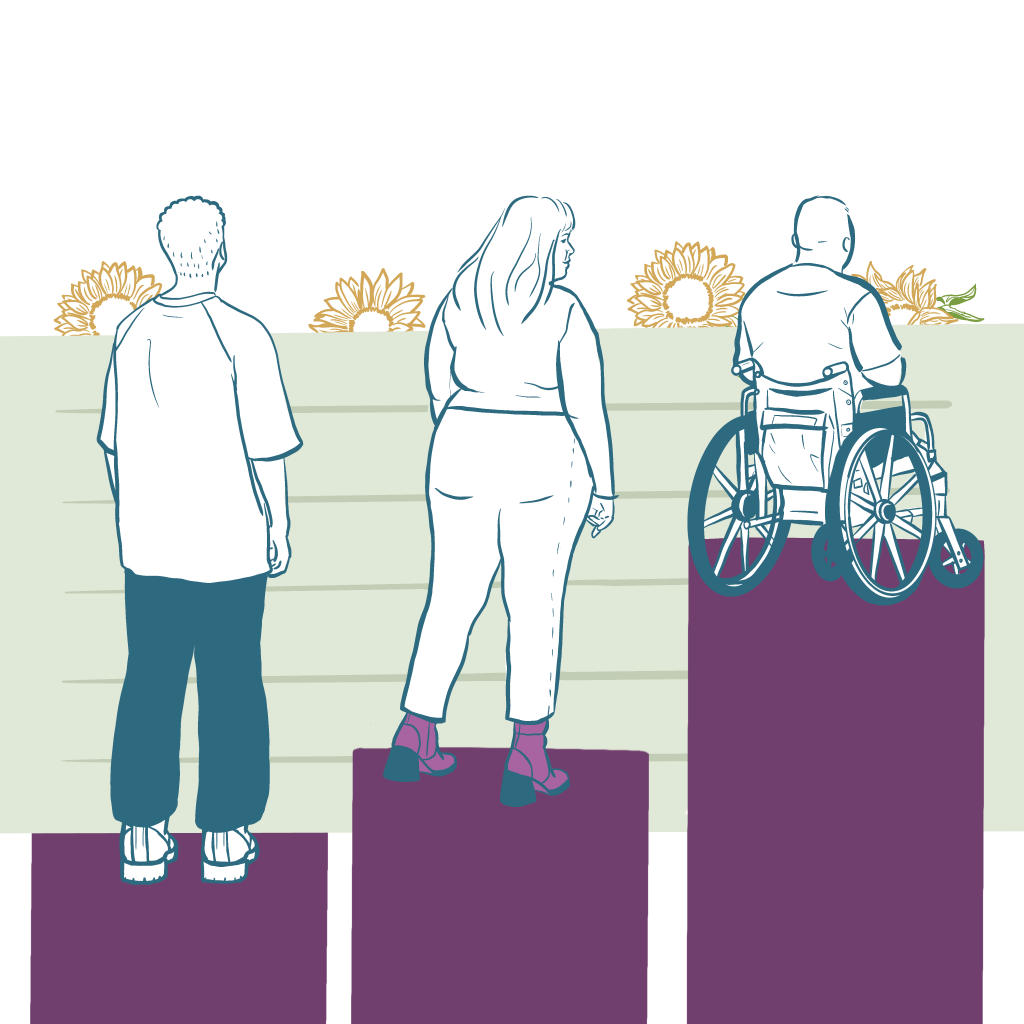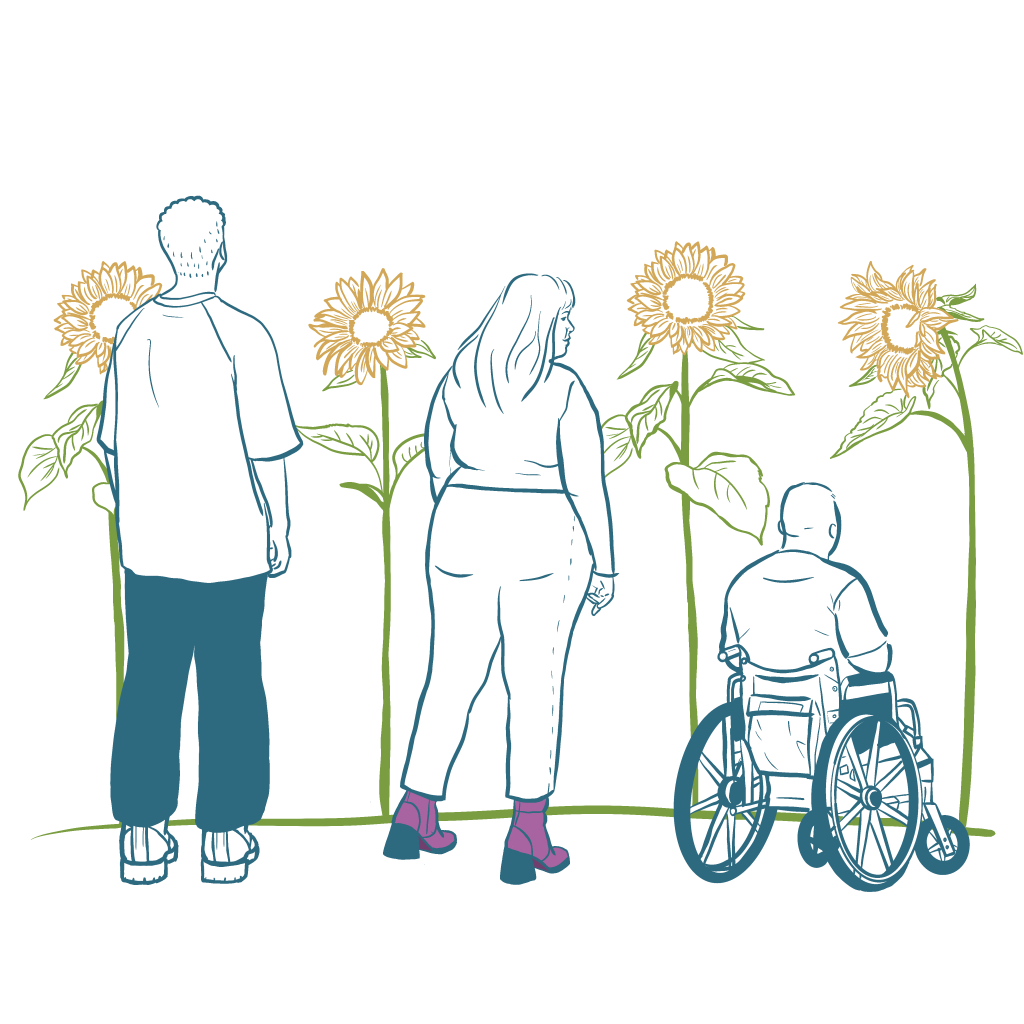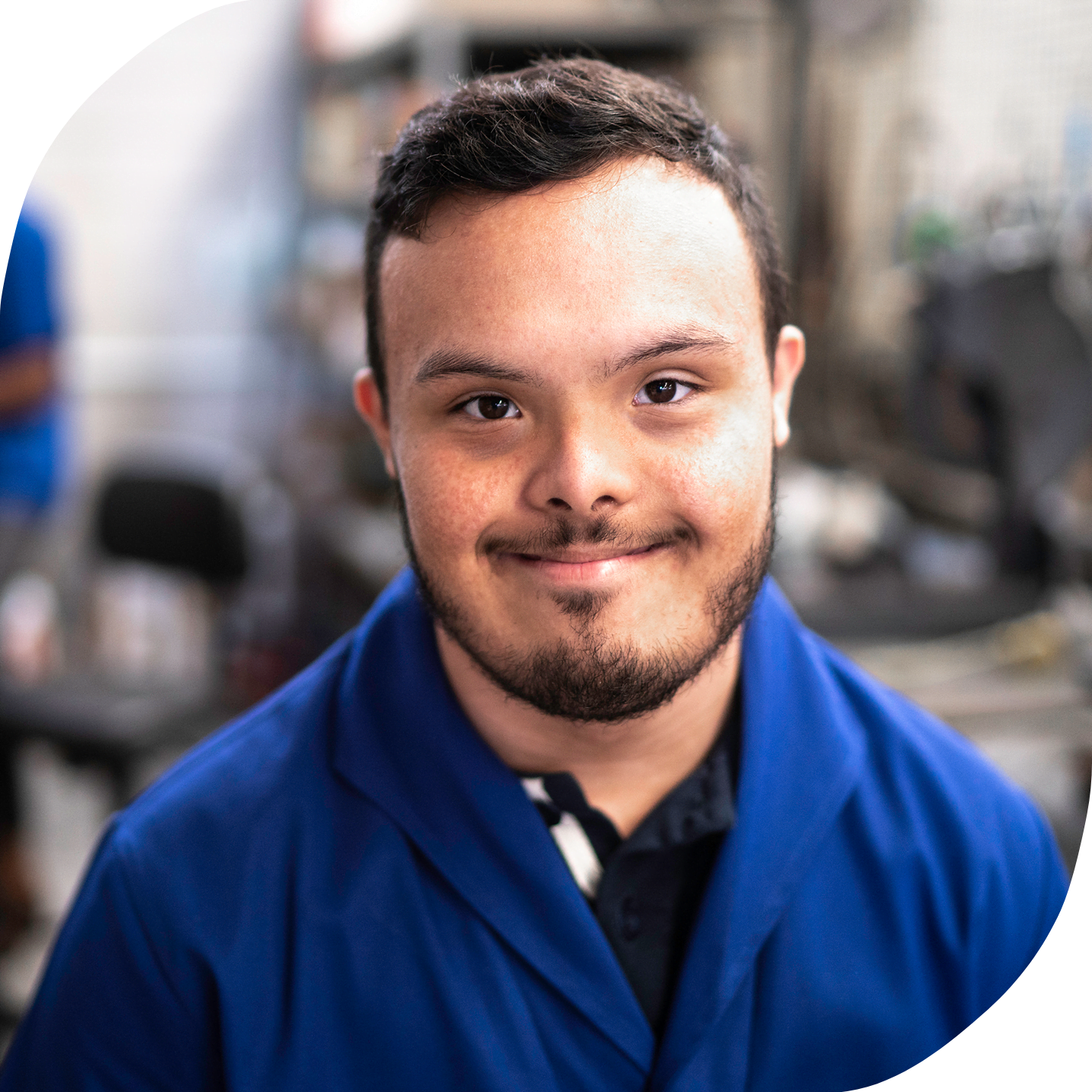Special programs
Please note: on April 1, 2020 the mandate to approve special programs moved from the BC Human Rights Tribunal to BC’s Office of the Human Rights Commissioner.
A special program is any program or activity that aims to improve the lives of disadvantaged individuals or groups in British Columbia. Equality means that each person is treated fairly and with dignity. It means that “no one is denied opportunities for reasons that have nothing to do with inherent ability.”1 However, treating everyone the same can sometimes lead to discrimination against disadvantaged individuals or groups. Sometimes to advance human rights objectives we need to look at treating people differently. In this way, we work towards substantive equality, also referred to as equity, where everyone is equal in dignity and rights.2



Below you will find information on what special programs are and how to apply to the Human Rights Commissioner for approval of a special program.
What is a special program designation?
Special programs treat disadvantaged people and groups differently to promote substantive equality (or equity). This can mean that advantaged and dominant groups are excluded from opportunities provided by the special program.
For example, restricting hiring to women, Indigenous or trans people excludes men, non-Indigenous or cisgender people from employment opportunities. Excluded groups could potentially complain that this is illegal discrimination under B.C.’s Human Rights Code.
However, the Human Rights Code includes provisions that allow any person or organization to run a program or activity that discriminates against certain groups or individuals if the objective is to improve conditions for identified disadvantaged groups. These programs or activities are not considered illegal discrimination under the Code if the Human Rights Commissioner designates them as special programs.
As long as a special program designation (approval by the Human Rights Commissioner) is in place, the special program can’t be considered as discriminatory.3 This protection only applies to the terms of the special program and not to other potentially discriminatory behaviour.
Figuring out if you need to apply for a special program designation
You don’t need a formal designation from the Human Rights Commissioner to start a special program. In fact, most special programs in British Columbia run without this designation. The difference is that, if you don’t have this designation and a complaint against your program is made to the Human Rights Tribunal, the case may be heard and you may need to defend the program.
There are other exemptions in the Human Rights Code that may apply, depending on your organization and your initiative. This may be relevant to your decision on whether to apply for a special program designation from the Human Rights Commissioner.
In some cases, a restricted hiring initiative may be justified as a bona fide occupational requirement under section 11 or section 13 of the Code if:
- There is a legitimate job-related purpose for the requirement.
- You believe the requirement is necessary for the job.
- You explored changes to the requirement or accommodations for a worker but could not find a way to make it work. The Human Rights Tribunal offers more information on the legal test for a bona fide occupational requirement.
- Employment equity programs do not contravene the Code. Section 42(1) of the Code explains further what counts as an employment equity program for the purpose of this exemption. See our employment equity toolkit!
- Non-profits whose primary purpose is the promotion of the interests and welfare of an identifiable disadvantaged group do not contravene the Code when they grant preference to that group. For more, see section 41 of the Code.
How can special programs improve conditions for disadvantaged groups?
“Disadvantage” refers to historic barriers to full participation in social, cultural, economic and political life.
Research shows:
- Indigenous Peoples have been and are systematically displaced from their lands, excluded from political life, deprived of full cultural expression and suffer intergenerational trauma as a result of residential schools. Colonial policies continue to add to large gaps between Indigenous and non-Indigenous people in education, employment, income, health and housing. Indigenous Peoples continue to experience racism individually and as a group.
- For example: A special program to benefit Indigenous Peoples where Indigenous candidates are preferentially hired in a school district to improve educational outcomes for Indigenous students.4
- Racialized people have been and can be subjected to subtle and overt racial stereotyping that can limit their safe access to employment opportunities, housing and public space.5
- For example: A special program to benefit a racialized group is where an organization provides programming exclusively to African Canadian youth to overcome barriers and make positive changes in their communities.
- People with disabilities have been and can be underestimated and excluded from employment and other areas of public life. They face barriers resulting from a society built mainly for people without disabilities.6 People with mental illnesses or disabilities are stigmatized and marginalized.7
- For example: A special program to benefit people with disabilities is where a post-secondary education institution reserves a number of positions for people with disabilities to improve their chances for employment.
- Women continue to earn less money than men and tend to handle more family caregiving responsibilities. This impacts their ability to participate in the workforce.8 They also face gendered violence including sexual and domestic assault much more than men do, and often at the hands of men.9
- For example: A special program to benefit women is where only women are hired to work with women survivors of domestic and sexual abuse.
- Transgender people face high levels of stigma and are at an increased risk of violence, harassment, social isolation and discrimination.10
- For example: A special program to benefit trans people is where trans people are given preferential hiring to work with at-risk trans youth.
What has the Human Rights Commissioner designated as a special program?
BC’s Office of the Human Rights Commissioner (BCOHRC) maintains a list of active special program approvals (PDF, 245KB). Note that until April 1, 2020, special programs were approved and administered by the BC Human Rights Tribunal.
How do I seek a special program designation?
Step one: Apply
Complete the application form and submit it to SpecialPrograms@bchumanrights.ca
Special programs: Application form (PDF, 441KB) ▼
Step two: Wait for a decision
BCOHRC will review your application and the Commissioner will send a decision letter within 90 days from the day BCOHRC receives the application.
In some cases, BCOHRC may ask for more information. This may delay the 90-day timeline.
Step three: Reporting
Generally, organizations are required to report to the Commissioner at designated intervals on the progress of their approved special program.
The standard special program designation is granted for five years. The Commissioner normally requires progress reports at the mid-point of an approval period and again when the approval expires. Failure to comply with reporting requirements can result in the Commissioner terminating approval of the special program.
If you are applying for a renewal of your special program (see below), your renewal application can also serve as your final report.
Reports must identify:
- What actions the organization has taken as part of its special program
- Any barriers the organization has faced in implementing its special program, and how it has addressed those barriers
- Whether and to what extent the special program is meeting its goal of ameliorating disadvantage faced by the target group
- Any other information requested by the Commissioner in the approval letter for the special program
We welcome reports in a form appropriate to your circumstances, including a letter or in the body of an email.
Step four: renewal
All special program approvals are time limited. Generally, the Commissioner will approve a special program for a period from six months to five years, with the option to renew. To renew a special program, complete the renewal form and submit it to SpecialPrograms@bchumanrights.ca
Special programs: Renewal (PDF, 191KB) ▼
Things to think about when preparing your application
-
Do you need a special programs designation for your initiative?
Hiring someone because that person has a skillset linked to their role and to a part of their identity may not be discriminatory. For example, it may not be discrimination to hire an Indigenous person in part because of their knowledge about Indigenous communities and cultures or to hire a person with disabilities in part because of their lived expertise with accessibility challenges, especially if such knowledge or expertise is relevant to their job description.
-
Have you explained what disadvantaged groups are benefiting from your initiative and how and why they are disadvantaged?
Your initiative can target multiple groups as long as your application explains the unique disadvantage that each group faces and provides some evidence of that disadvantage such as statistics, studies, etc.
-
Have you explained the basis on which an individual will be considered part of a disadvantaged group?
Often applicants will rely on a person’s self-identification as a member of a disadvantaged group, but verifying eligibility is an option.
-
Have you picked the right scope for your initiative?
Sometimes a special program is very narrow—for example, the hiring of a single person from a disadvantaged group. But it can also be very broad—for example, a hiring initiative across all roles in an organization and targeting multiple disadvantaged groups. A single special program could include aspects of hiring, service provision, tenancy, or other areas all targeted at addressing disadvantage. What you choose often depends on your organization’s goals and capacity.
-
Have you defined what success looks like and how you will measure your progress?
This will depend on the scope of your program (see above). Again, using hiring as an example, measuring your success in hiring one person is often straightforward. If you’re implementing a broad hiring initiative, you’ll need to identify the targets you hope to achieve, why you’ve selected them, and how you’ll track your progress over time. This will also help you when filing your progress reports.
-
Have you requested a length of time for your special program approval?
Typically, the Human Rights Commissioner will give special programs designation for up to five years, with the option to renew every five years or until the disadvantage has been adequately addressed. The length of time you request will depend on your program.
-
Have you demonstrated that your application is supported by third parties who are implicated in it?
The Human Rights Commissioner requires evidence of this support in the form of a letter or email accompanying your application. Most often this takes the form of union support for a hiring initiative, but there are many other circumstances where you may need to demonstrate third party support.
-
Is your application a variation on one of your organization’s existing special programs?
Sometimes an organization with an active special program designation wants to do more to address disadvantage. In this case, amending your existing special program to expand its scope may make more sense than applying for a separate designation. You can send a letter to the Human Rights Commissioner via SpecialPrograms@bchumanrights.ca to request an amendment to your existing approval.
Make sure you explain why the amendment will improve conditions for one or more disadvantaged groups. If the amendment impacts other third parties, such as a different union not affected in the existing special program, please include evidence of their support.
For more information
If you are considering implementing a special program and have questions, please contact SpecialPrograms@bchumanrights.ca.
- Government of Canada – Commission of Inquiry on Equality in Employment, Report of the Commission on Equality in Employment, Supply and Services Canada, 1984, p. 2.. This report is also referred to as the “Abella Report.”
- Human Rights Code, R.S.B.C. 1996, c. 210, s. 3.
- Human Rights Code, R.S.B.C. 1996, c. 210, s. 42(3).
- Government of Canada – Truth and Reconciliation Commission, Honouring the Truth, Reconciling for the Future: Summary of the Final Report of the Truth and Reconciliation Commission of Canada, Truth and Reconciliation Commission, 2015.; R v. Kapp, 2008, SCC 41 at para. 59.
- See for example, Radek v. Henderson Development (Canada) Ltd., 2005 BCHRT 302 at paras. 475–482.
- Council of Canadians with Disabilities v. VIA Rail Canada Inc., 2007, SCC 15 at para. 181.
- Battlefords and District Co-operative Ltd. v. Gibbs,1996, 3 SCR 566 at para. 31.
- Commission of Inquiry on Equality in Employment, Abella Report, 1984; Kendra Milne, High stakes: The impacts of child care on the human rights of women and children, West Coast LEAF, July 2016.
- Cecilia Benoit et al., Issue Brief: Sexual Violence Against Women in Canada, Issue Brief commissioned by the Federal-Provincial-Territorial Senior Officials for the Status of Women Canada, Status of Women Canada, December 2015.
- Ontario Human Rights Commission, Policy on Harassment and Discrimination Because of Gender Identity, Ontario Human Rights Commission, approved March 30, 2000, updated 2009.
